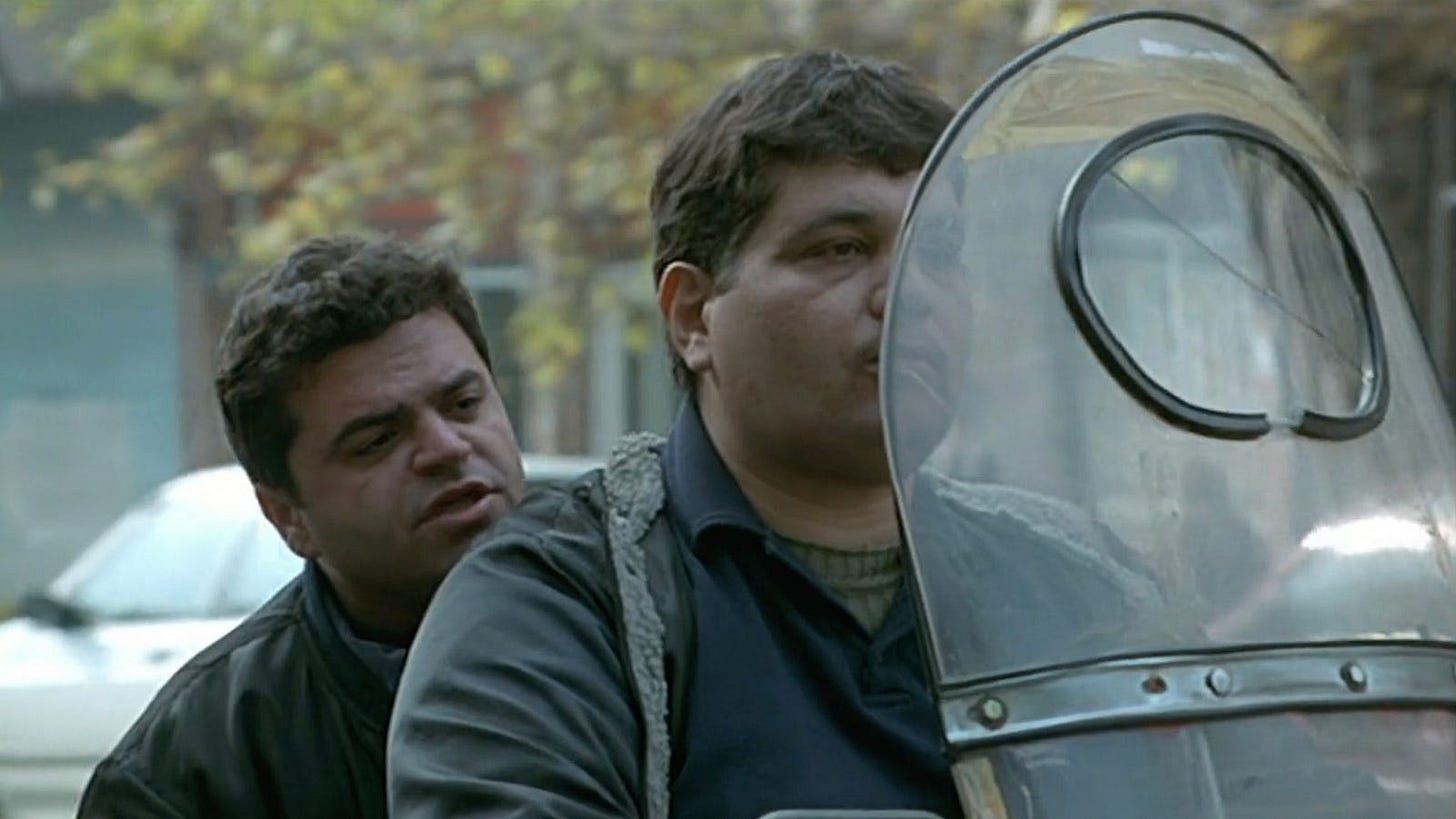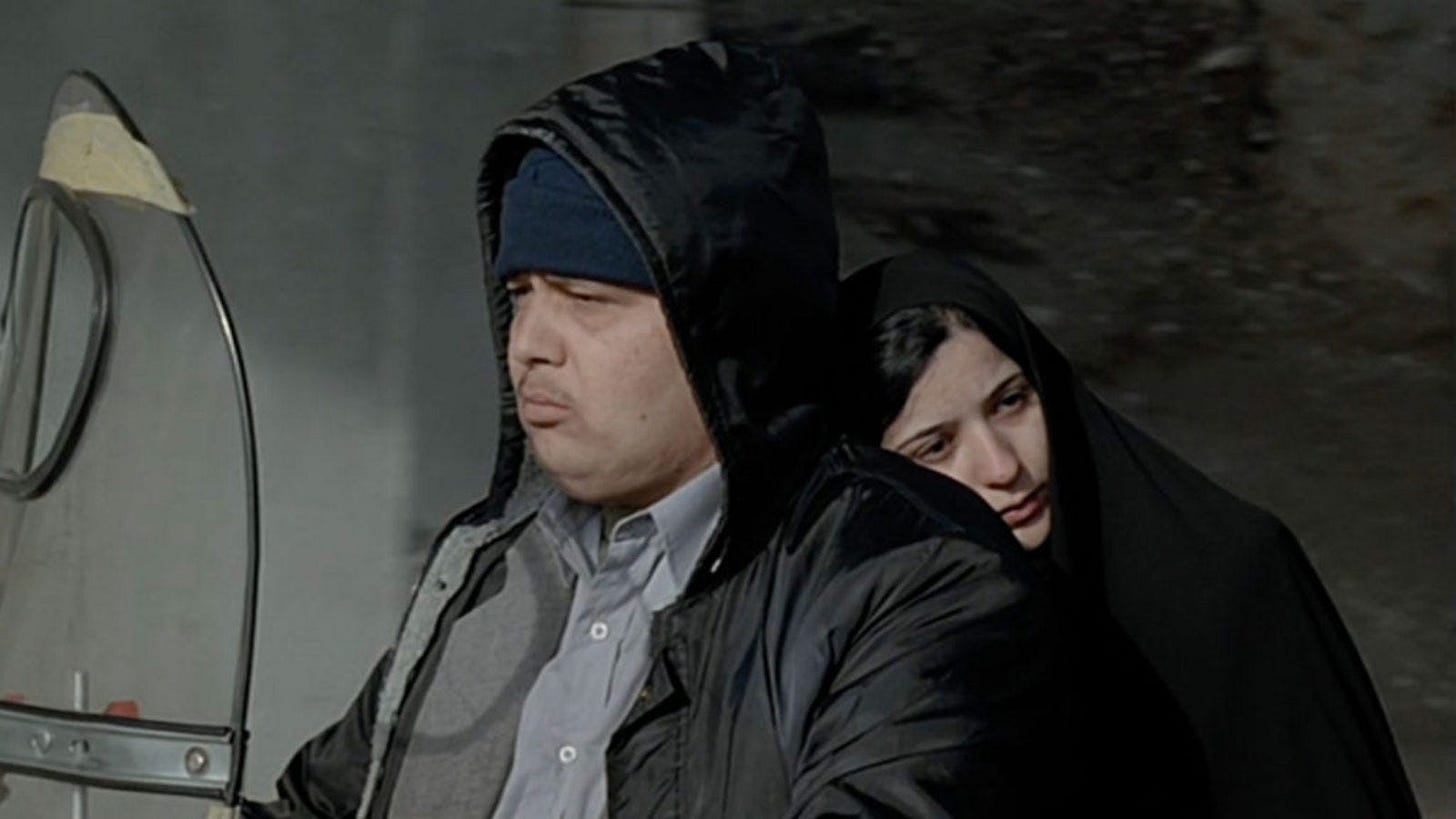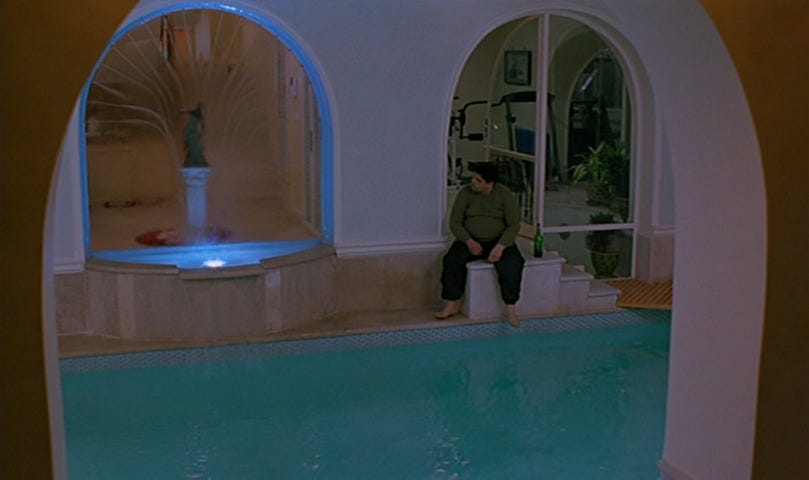Review: ‘Crimson Gold’ — Iran’s Bleak Take on ‘Taxi Driver’
Jafar Panahi and Abbas Kiarostami’s collaborative film is bluntly saddening, cold and exacting

Jafar Panahi, a student of the legenedary Iranian director Abbas Kiarostami (director of Close-Up, Where is My Friend’s House?, 24 Frames, The Wind Will Carry Us and more), is arguably one of the boldest directors currently working (or, even, of all time). Panahi’s career, beginning with a collaboration with his teacher Kiarostami on a film named The White Balloon (1995), was one quickly recognised and appreciated worldwide due to his almost immediate success at film festivals and his general critical acclaim, despite the fact that his films were politically daring and unflattering enough that they were frequently banned in his home country of Iran. Many filmmakers make political films, but Panahi has constantly shown a willingness to risk his own wellbeing in order to make his political points heard — in 2010, after many years of on-and-off problems with the law and with the government because of his films and what they choose to represent, Panahi, his family and a large group of his friends were suddenly arrested and (despite the best efforts of many artists and fans of Panahi’s work) he was sentenced to six years in jail as well as banned from making films, leaving Iran, writing screenplays or appearing in anything involving the media for the next 20 years!
Panahi, boldly and brilliantly pushing forwards, made a film ironically titled This is Not a Film in 2011, which he subsequently smuggled into the Cannes Film Festival on a USB-stick inside of a cake. Over the years, Panahi has committed to hunger strikes, political imprisonment and risking his freedom in order to defend other artists and other friends of his. Panahi continues making films, most recently with 2022’s No Bears (an excellent film, in which Panahi plays a fictionalised version of himself stranded in Iran under his long term curfew), but he must constantly do so as secretively and cautiously as possible and continues to find himself in frequent legal trouble because of his refusal to leave his art behind.
All of this is to say that, since the beginnings of his career, Panahi has been a fiercely passionate political filmmaker. While his mentor, Abbas Kiarostami, more notably leant towards poeticism within his works rather than politics, Panahi finds a meeting point between the two. But while his films do have their political bite almost constantly, they are generally hopeful and warm experiences overall (Offside is generally considered a comedy, for example), ones which carry with them a defiance and a promise that Panahi and others will work tirelessly to ensure that the future in Iran becomes more palatable for artists and for residents. There is one major exception to this rule, though, and it is Crimson Gold, Panahi’s 2003 drama which, like The White Balloon, is built upon a screenplay written by the great Abbas Kiarostami.
Its story is simple but very effective. A shell-shock inducing opening scene, consisting of one shot which very slowly zooms in (perhaps as an homage to Michelangelo Antonioni’s excellent 1975 film The Passenger’s finale), introduces us to Hussein (played by first time actor Hossain Emadeddin) as he attempts to rob a jewellery store at gunpoint with help from his soon-to-be brother in law Ali (Kamyar Sheisi, also a first time actor). Things very quickly go horribly wrong as a young woman enters the store mid-robbery and then rushes out calling for the police, giving the jeweller enough time to hit the alarms and bring down metal bars over the door. Trapped and terrified, Hussein shoots the jeweller and paces around for a moment, overwhelmed, before standing trapped in the doorway and shooting himself. It’s a shocking opening moment, brutal and striking, but it establishes the tone for Panahi’s film beautifully. This Iranian New Wave entry certainly doesn’t share the self-reflexive or poetic qualities of some of its contemporaries, instead focusing intently on its working class characters and utilising the grounded, quasi-documentary visual style which makes the films of this period in Iran so absorbing.

Following that introductory sequence, Panahi takes the viewer back and has them see through the rest of the film exactly what led Hussein to rob the store and, ultimately, take his own life. And to do this, he uses a fascinating structure — almost episodic, but really consisting of two major scenes per episode as opposed to one elongated sequence. Panahi/Kiarostami will introduce an idea in one scene — for example, the petty thievery of Hussein and Ali which helps the two to pay the bills alongside their jobs as pizza delivery drivers serves to introduce their lack of education (Ali can’t read the numbers on a receipt he finds in a stolen handbag, and Hussein says that if he had any intelligence he’d not be stuck as a thief/delivery driver at all) and their quiet desperation is intelligently counter-balanced by the introduction of a more lavish gangster-type who looks down upon the two men for being so careless about their robberies and not considering their victims carefully enough. Later on, one scene sees Hussein come across a horrible crash site where one of his pizza delivering co-workers has been hit by a car. A homeless man walks onto the scene, picking up a pile of pizzas and then running away while audibly upset and overwhelmed by shame. Shortly after, Hussein delivers to an extremely rich customer who complains constantly on his phone while Hussein finds blood on the man’s bathroom floor and then sits by the side of his lavish indoor pool, almosr hypnotised by what this probable gangster has been able to afford through his work.
Hussein’s clear want for a better life, highlighted most effectively by a scene in which he takes his fiancee jewellery shopping and appears to have a panic attack upon seeing the prices and feeling the weight of social expectations upon him, is complicated further by his mental health issues. Both Hussein and the man playing him, Hossain Emadeddin, suffer from schizophrenia (Emadeddin is/was also a genuine pizza delivery driver, too), and Hussein’s mental and physical difficulties play a major role in his gradual descent from a working man towards his death. He is almost fired from his pizza delivering job because his medication, cortisone, ‘slows him down’ as Ali explains to their boss. Multiple characters comment on the fact that Hussein is easily offended and very wary of how others perceive him, which massively exacerbates his class-based paranoia. Despite the fact that Hussein is clearly a genuinely caring man — as evidenced by one lengthy scene which sees him stuck in the middle of a police operation waiting to deliver pizzas to a temporarily closed building, talking to one officer who explains that the men aren’t allowed to eat until their work is done but then convincing the captain to let the men have the pizzas he has brought, walking around and sharing the slices in a moving gesture of generosity — he forever feels judged, especially when around those with more money than he has.

In the jewellery store with his fiancee, Hussein feels mocked and looked down upon, only fuelling his difficulties already stemming from his financial problems, his mental and physical instability, the social pressures upon him as a soon-to-be married man. While the direction and the character work may feel like that of Ken Loach’s films — extremely grounded and realistic, slowly paced and mundane — the actual story of Crimson Gold and the character work with Hussein feels much more readily comparable to Martin Scorsese’s Taxi Driver. Like that film’s infamous Travis Bickle, Hussein is a man certainly with kind and gentle elements who gradually finds himself falling further and further towards desperation, anger and violence. Of course, Panahi doesn’t condone his eventual robbery effort or his actions more widely, but he does seek to understand what leads people to fall through the layer of poverty into outright violent crime. Hussein appears to be the opposite of malicious through most of the film, an inquisitive and kind, quiet man, but Panahi portrays with a bleak clarity the problems which lead him to break.
While Crimson Gold struggles to make the same stunning impression as its fantastic opening scene does for the rest of its running time, and Panahi’s film isn’t free from problems (its pacing can feel inconsistent, some scenes stretching out while others feel too brief, and some of the characters could easily be afforded some additional depth), it remains a remarkable entry into the Iranian New Wave and proves a meaningful, moving film that takes the plights of its working class characters seriously and challenges the class divides which lead, in part, to those problems in the first place. A challenging, sharp and sometimes provocative work, Panahi is as fiery as ever with Crimson Gold, and a touch more cynical than usual. His film is blunt and moving, powerful and immaculately acted (especially keeping in mind the use of first-time actors) and it demands to be seen and appreciated by a wider audience.




Your insights on Panahi’s style and the class struggle in the film was really good. I will try to find crimson gold. Would be nice if you left a link to the movie if possible.
You can text me the link if possible or give me advice on where I can find it, if you dont mind.